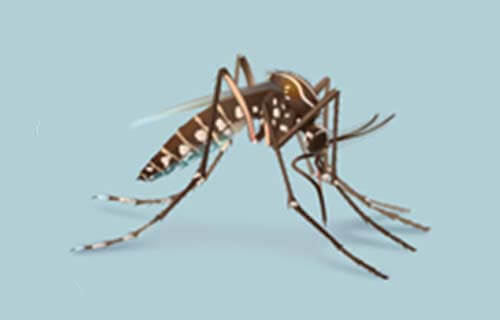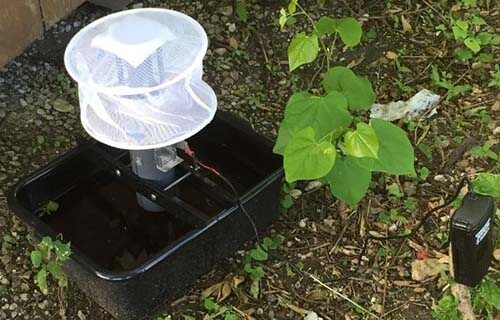Environmental Health
Goal
To reduce the occurrence of foodborne illness and to promote safe food practices within Henderson County.
How does the Henderson County Health Department ensure food safety for its citizens?
Henderson County Food Ordinance
Sanitarians conduct inspections of food service and food retail facilities in Henderson County to determine compliance with the Illinois Food Service Sanitation Code. There are approximately 30 food service/retail facilities operating in Henderson County.
Conducts food complaint/food incident investigations.
Responsible for Foodborne Illness surveillance in Henderson County.
Where can I get more information about food safety and food recalls?
High fever (temperature over 101.5 F, measured orally)
FOOD SAFETY AT HOME
Call the Environmental Health Division at (309)627-2812 ext 244 to report a foodborne illness.
What is foodborne illness?
Foodborne illness (sometimes called “foodborne disease,” “foodborne infection,” or “food poisoning) is a common, costly—yet preventable—public health problem. Each year, 1 in 6 Americans gets sick by consuming contaminated foods or beverages. Many different disease-causing microbes, or pathogens, can contaminate foods, so there are many different foodborne infections. In addition, poisonous chemicals, or other harmful substances can cause foodborne diseases if they are present in food. –Centers for Disease Control and Prevention
What should you do if you think you have a foodborne illness?
See your doctor if you have:
High fever (temperature over 101.5 F, measured orally)
Blood in the stools
Prolonged vomiting that prevents keeping liquids down (which can lead to dehydration)
Signs of dehydration, including a decrease in urination, a dry mouth and throat, and feeling dizzy when standing up.
Diarrheal illness that lasts more than 3 days
Diarrheal illness that lasts more than 24 hours (children)
Jaundice (yellowing of the skin or eyes)
Characteristics of Foodborne Illness:
Cannot smell or taste any of the agents that can cause a foodborne illness.
Chances are the last place you ate was not the source of your illness.
Foodborne illness onset time can range from 30 minutes to more than 30 days.
Write down or recall all the meals, snacks, and drinks 3-5 days prior to the start of symptoms.
Note any activities such as travel, visitors, meetings, shopping, contact with animals and events.
Treatment:
See your doctor if you have:
Do not be surprised if your doctor does not prescribe an antibiotic. Many diarrheal illnesses are caused by viruses and will improve in 2 or 3 days without antibiotic therapy. In fact, antibiotics have no effect on viruses, and using an antibiotic to treat a viral infection could cause more harm than good.
Drink plenty of fluids to prevent dehydration. Physicians may prescribe anti vomiting or diarrhea medicines.
In order to find out what microbe or pathogen is making you sick, a stool sample will need to be submitted to a lab for testing. Without results of a stool sample only a guess can be made to what caused the foodborne illness.
Transmission of Illness:
Many foodborne illnesses can be transmitted from person to person. Transmission also occurs when people fail to wash their hands properly after using the toilet, before eating, touching their hands to their mouth, or handling food.
Temporary Food Service
Temporary Food service Application
Temporary food Standy Safety Guide
Food Service
Henderson County Health Department offers Foodservice Sanitation Manager Certification Testing.
All foodservice operations are licensed and inspected by the Henderson County Health Department.
Procedure to open a Food Facility
Food Service Application
Sanitarians conduct inspections of food service and food retail facilities in Henderson County to determine compliance with the Illinois Food Service Sanitation Code. There are approximately 30 food service/retail facilities operating in Henderson County.
Food Variance Application
Goal
Educate the public and minimize the potential for human disease caused by vectors.
What is a vector?
Vectors are insects, ticks, rodents, some birds and other animals that can transmit disease and cause discomfort in humans. Control of these pests reduces the incidence of disease in the public.
Services
Vector borne disease surveillance and investigation
Educational Materials
Complaint investigations
West Nile Virus
Information for Illinois and Henderson County on West Nile Virus, as well as prevention and control of mosquitoes, can be found at http://www.idph.state.il.us/envhealth/wnv.htm.
Zika Virus
Zika Virus is a virus similar to dengue, yellow fever, and West Nile and is primarily transmitted through mosquitoes and sex. For more information on Zika can be found at Zika (illinois.gov)
Remove items from their properties that collect water and provide breeding areas for mosquitoes.
Keep weeds and grasses cut.
Maintain screens in good repair.
Avoid places and times when mosquitoes bite.
Henderson County Health Department’s role in WNV control:
Education
Surveillance
Mosquito trapping and testing
Dead bird tracking, collection, and testing
Ticks
Ticks can be brought to the Henderson County Health Department for testing of Lyme disease . They will be sent to either the Illinois Natural History Survey or the Illinois Department of Public Health for identification.
Bed Bugs
Where can I get more information about insect, vector and rodent control?
Goal
To protect the citizens of Henderson County from contracting and transmitting waterborne illnesses by helping to provide and assuring safe water for drinking, culinary, and sanitary purposes.
What is potable water?
Potable water means water that is safe for drinking and cooking.
How Does the Henderson County Health Department ensure potable water for its citizens?
Henderson County Water Well Permit and Water Supply Testing is Available.
Private water supplies
Test kits are available at the Henderson County Health Department. Samples are screened for biological and chemical contamination. Coliform bacteria are used as an indicator for biological contamination and nitrate/nitrite is used as an indicator for chemical contamination. Test kits can be used for water supplies that are not public water systems.
What is a private water supply?
A private water supply is any supply that is not a public water system, which provides water for drinking, culinary, and sanitary purposes and serves an owner-occupied single-family dwelling.
What is a semi-private water supply?
A semi-private water supply is any supply that is not a public water system, which serves a segment of the public other than an owner-occupied single-family dwelling.
Non-Community Public Water Supplies: Monitoring of non-community water supplies (NCPWS).
What is a NCPWS?
A NCPWS is a system that is not a community water system, and has at least 15 service connections used by nonresidents, or regularly serves 25 or more nonresident individuals daily for at least 60 days per year.
Abandoned Well Sealing: Review plans to seal abandoned water wells, and perform inspections during sealing. The sealing form must be reviewed to ensure it meets Illinois Water Well Construction Code abandoned well sealing requirements.
Water Well Construction Permits: Perform a plan review and site evaluation prior to issuing a permit to construct a new water well.
Real Estate Evaluation Form: Inspects private water wells at rural properties and collects samples from those wells upon request.
Waterborne Illness: Monitor indicators of waterborne illness. Perform waterborne illness investigation in the event of an outbreak.
Goal
To reduce the incidence of disease transmission, disease organisms and nuisances through the disposal of sewage to properly designed, constructed, and operated sewage disposal.
What is “Private Sewage Disposal”?
Private sewage disposal is any sewage handling or treatment facility receiving domestic sewage from less than 15 people or population equivalent and having a ground surface discharge or any sewage handling or treatment facility receiving domestic sewage and having no ground surface discharge.
How Does the Henderson County Health Department ensure the effectiveness and safety of private sewage disposal?
Provides information on Procedures to Install/Renovate a Private Sewage Disposal System
Private Sewage Disposal Installation Application
Private Sewage Disposal Permits: Performs a plan review of the Private Sewage Disposal Plan Application, a site evaluation and inspection of new or renovated systems.
Inspects wastewater haulers and portable sanitation businesses within Henderson County.
Real Estate evaluations: Inspects private sewage disposal systems at rural properties upon request.
Complaint Investigations: Investigates complaints regarding wastewater and sewage in Henderson County.
Environmental Complaints
The Environmental Division responds to a wide range of complaints, including solid waste, housing, toxic and hazardous waste, facility sanitation, foodborne illness, occupational health, and general nuisance conditions through investigations or referrals to other agencies. An individual may register a complaint or report a foodborne illness with the Environmental Division by telephone (309) 627-2812 EXT 244, mail Po Box 220 Gladstone IL 61437 or in person, 8 a.m. to 4:00 p.m., Monday through Thursday. Names of complainants are confidential.







